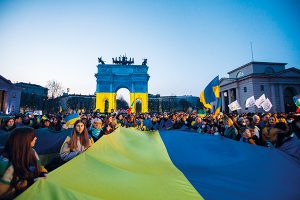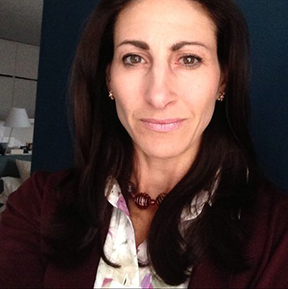If peace in Ukraine looks depressingly far away, accountability seems beyond another galaxy. What are the chances Vladimir Putin will appear in a courtroom to answer for the hell he’s unleashed in Ukraine? They seem vanishingly small.
And yet, national leaders, politicians, global organisations and an army of individuals are working to build the war crimes case against Putin and his regime. The International Criminal Court (ICC), the European Court of Human Rights and the International Court of Justice are all investigating crimes committed in Ukraine. Former UK prime ministers Gordon Brown and John Major have thrown their support behind an initiative to back a new tribunal.
US Secretary of State Antony Blinken announced that the US had credible evidence of war crimes committed by Russian forces in Ukraine. “We’ve seen numerous credible reports of indiscriminate attacks and attacks deliberately targeting civilians, as well as other atrocities,†Blinken said. “Russia’s forces have destroyed apartment buildings, schools, hospitals, critical infrastructure, civilian vehicles, shopping centres, and ambulances, leaving thousands of innocent civilians killed or wounded.â€
Drawing the paper sword of international law
against Putin’s thermobaric weapons may seem like a liberal delusion, one that feels aimed at allaying the guilt over failing to mount a more robust intervention. But apart from the hope of retributive justice, these legal cases are a fundamental part of determining what kind of world we live in after the Ukraine war.
Realists will note how difficult war crimes cases are to prepare and prosecute. Only six people have so far been convicted and sentenced by the ICC.
The Nuremberg trials, where the concept of war crimes was formed and put into practice, were made possible only by the total defeat of Germany in WWII. Russia is likely to remain belligerent into the foreseeable future. Later courts — such as those set up to prosecute genocide and other war crimes in the former Yugoslavia and Rwanda — had to be authorised by the United Nations Security Council, where Russia holds a veto. Fat chance that will happen now.
Yet there are still compelling reasons to pursue war crimes cases now. One is that the process offers a sliver of hope that victims will eventually see justice. Another is it may boost the morale of refugees and others facing the reality of war. As these cases build, they could eventually even encourage forces within Russia to mount a serious challenge to Putin, or high ranking officials to one day turn into witnesses. It is better to gather the evidence now, before it can be destroyed.
Prosecuting war crimes in Ukraine ought to be easier than in other wars, too. This is the most heavily documented war we’ve ever seen. Evidence is being gathered, by researchers on the ground, by those interviewing refugees and by
an army of tech-savvy
researchers adept at open-source intelligence-gathering who are geolocating attacks on civilians.
The investigative site Bellingcat is organising and storing masses of data. Collating this information to prepare a legal challenge also offers at least one line of defense against future disinformation.
There is plenty of debate about the right way to go about a war crimes case. As Brown noted last week, the ICC can pursue war crimes and crimes against humanity, but it cannot prosecute Russia for the crime of aggression since Russia hasn’t signed on to the ICC’s Rome Statute. He and many others argue a special tribunal is the answer. That’s certainly appealing. Building cases to bring to the ICC is a painstaking process and can take years.
There is a body of international law that gives a lot of leeway to combatants. Much of the evidence that might look clear to most people might not be admissible under the strict criteria of the court. It can be very difficult to connect the dots between, say, an attack on civilians and someone up the chain of command. Bosnian Serb commander Ratko Mladic was convicted of 10 of the 11 charges against him, including the 1995 massacre in Srebrenica.
—Bloomberg
Therese Raphael is a columnist for Bloomberg Opinion. She was editorial page editor of the Wall Street Journal Europe
 The Gulf Time Newspaper One of the finest business newspapers in the UAE brought to you by our professional writers and editors.
The Gulf Time Newspaper One of the finest business newspapers in the UAE brought to you by our professional writers and editors.

